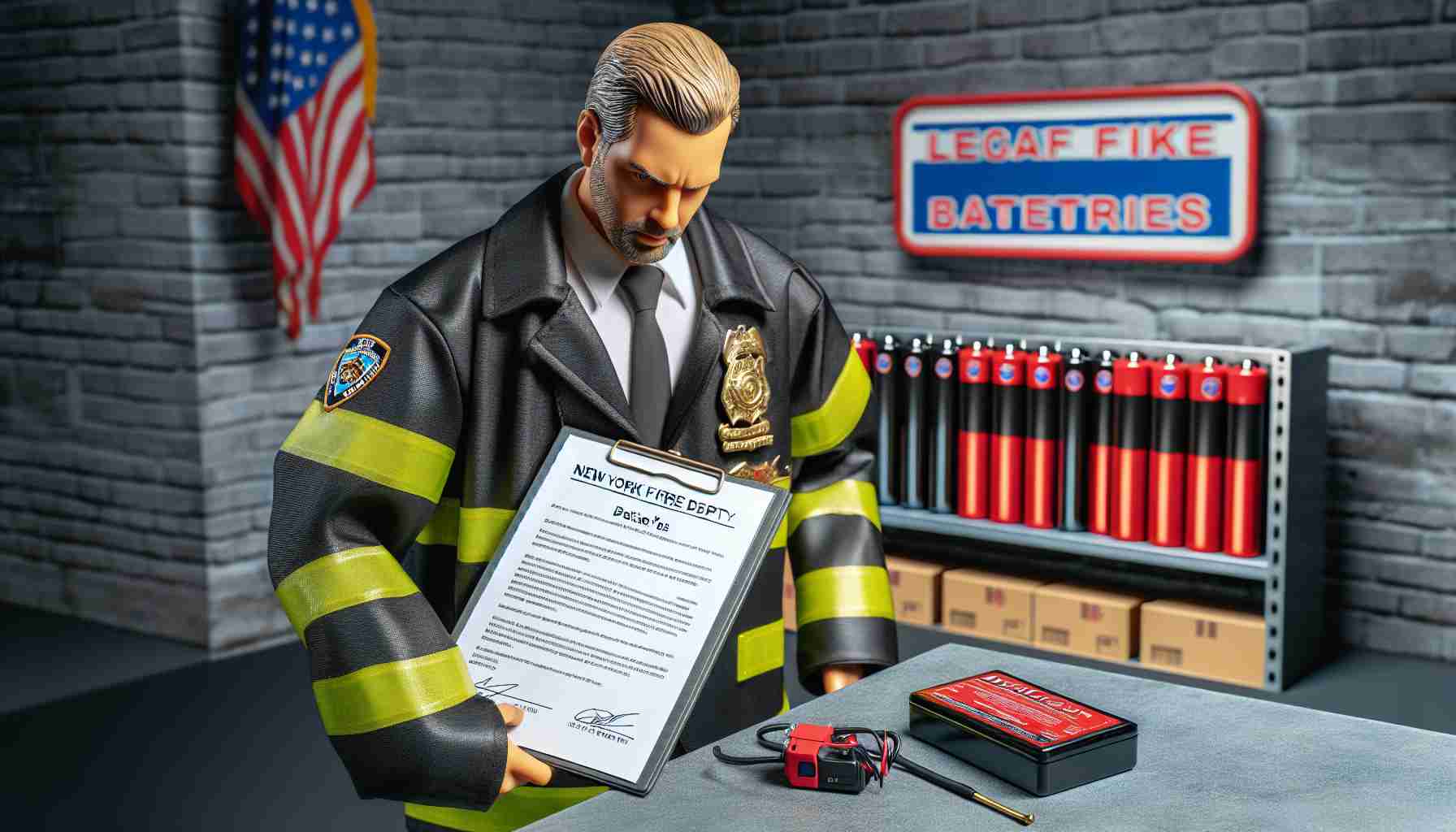The New York City Fire Department (FDNY) has taken a significant step in their efforts to tackle the growing issue of e-bike battery fires. In a groundbreaking move, the FDNY has filed criminal charges against a Brooklyn e-bike shop owner who has been repeatedly cited for selling illegal uncertified batteries and charging them in an unsafe manner.
The shop owner, Tian Liang Liu, was arrested on Friday when fire marshals arrived at his Electric Bicycle Shop on Flatbush Avenue. The charges against him include reckless endangerment, which is related to fire code violations stemming from the unsafe storage and charging of batteries.
This marks a departure from the usual approach taken by the FDNY and the Department of Consumer and Worker Protection, which have predominantly relied on issuing civil penalties to store owners. These civil penalties often only result in minimal financial consequences. However, the gravity of the situation has prompted the FDNY to take more assertive action.
Since 2019, over 660 e-bike battery fires have occurred in New York City, resulting in the tragic loss of 28 lives and causing injuries to 400 individuals. These alarming statistics highlight the urgent need for stricter regulations and enforcement surrounding e-bike batteries.
By taking criminal action against the shop owner, the FDNY hopes to send a clear message to the e-bike industry. It is imperative that businesses prioritize the safety of their customers by adhering to strict regulations and ensuring proper storage and charging procedures for batteries.
This milestone marks a turning point in the fight against e-bike battery fires in New York City. As authorities continue to crack down on unsafe practices, it is hoped that such incidents will decrease, preventing further loss of life and injury caused by these potentially explosive batteries.
The incident involving the FDNY’s criminal charges against the Brooklyn e-bike shop owner sheds light on the growing concern surrounding e-bike battery fires in New York City. This issue is not limited to the city alone but extends to the entire e-bike industry, which has experienced rapid growth in recent years.
The e-bike market has seen a surge in popularity due to its convenience, eco-friendly nature, and the increasing demand for alternative modes of transportation. According to market forecasts, the global e-bike market is projected to reach a value of $38.6 billion by 2025, experiencing a compound annual growth rate of 9.7% during the forecast period.
However, with this growth comes challenges and risks, particularly concerning the safety of e-bike batteries. The batteries used in e-bikes are typically lithium-ion batteries, which, if mishandled or improperly charged, can pose a significant fire hazard.
The FDNY’s actions against the Brooklyn shop owner highlight the need for stricter regulations and enforcement in the e-bike industry. Currently, there are varying standards and certification processes for e-bike batteries, leading to the presence of uncertified and potentially dangerous batteries in the market.
To tackle these issues, regulatory bodies, industry associations, and manufacturers need to work together to establish comprehensive safety standards for e-bike batteries. This includes proper storage and charging guidelines, as well as stringent certification processes to ensure that only safe and certified batteries are used in e-bikes.
Additionally, public awareness campaigns and educational initiatives should be implemented to educate e-bike owners about the risks associated with battery fires and the importance of following safety guidelines.
To stay informed about developments and news related to e-bike battery safety, you can visit reputable industry websites or news sources such as Bike EU or Electric Bike Report. These sources provide insights into industry trends, regulatory updates, and technological advancements aimed at enhancing e-bike safety.
Ultimately, addressing the issue of e-bike battery fires requires a collective effort from all stakeholders involved. Only through proactive measures, improved standards, and stringent enforcement can the industry ensure the safety of e-bike users and prevent future incidents.


















